World traveler, lover of all things creative, and Georgia native, Caitlin Ahern saw a need to connect newfound artists with communities who’ve been perfecting their craft for generations; and so she took action. By bringing these groups together, Ahern hoped to not only offer educational, environmental, and creative opportunities but also to preserve the cultures of the world during this time of rapid globalization. At the intersection of Ahern’s multipurpose mission, Thread Caravan was born.
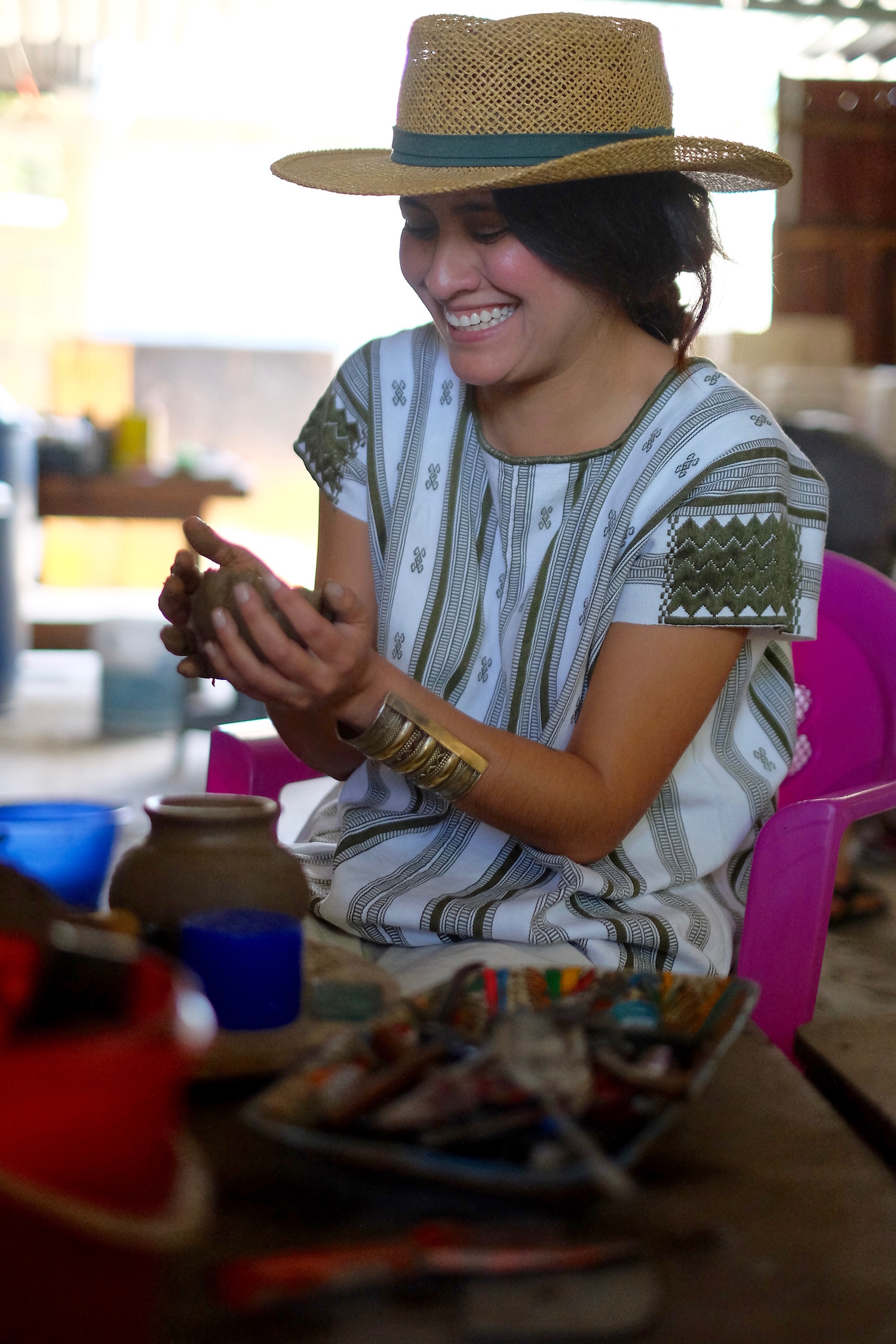
Ceramics Workshop in Oaxaca. Travelers visited small towns outside of Oaxaca City, each with their own unique clay processes. They harvested clay from a mine, eventually turning it into a workable material. (Sophia Mullin)
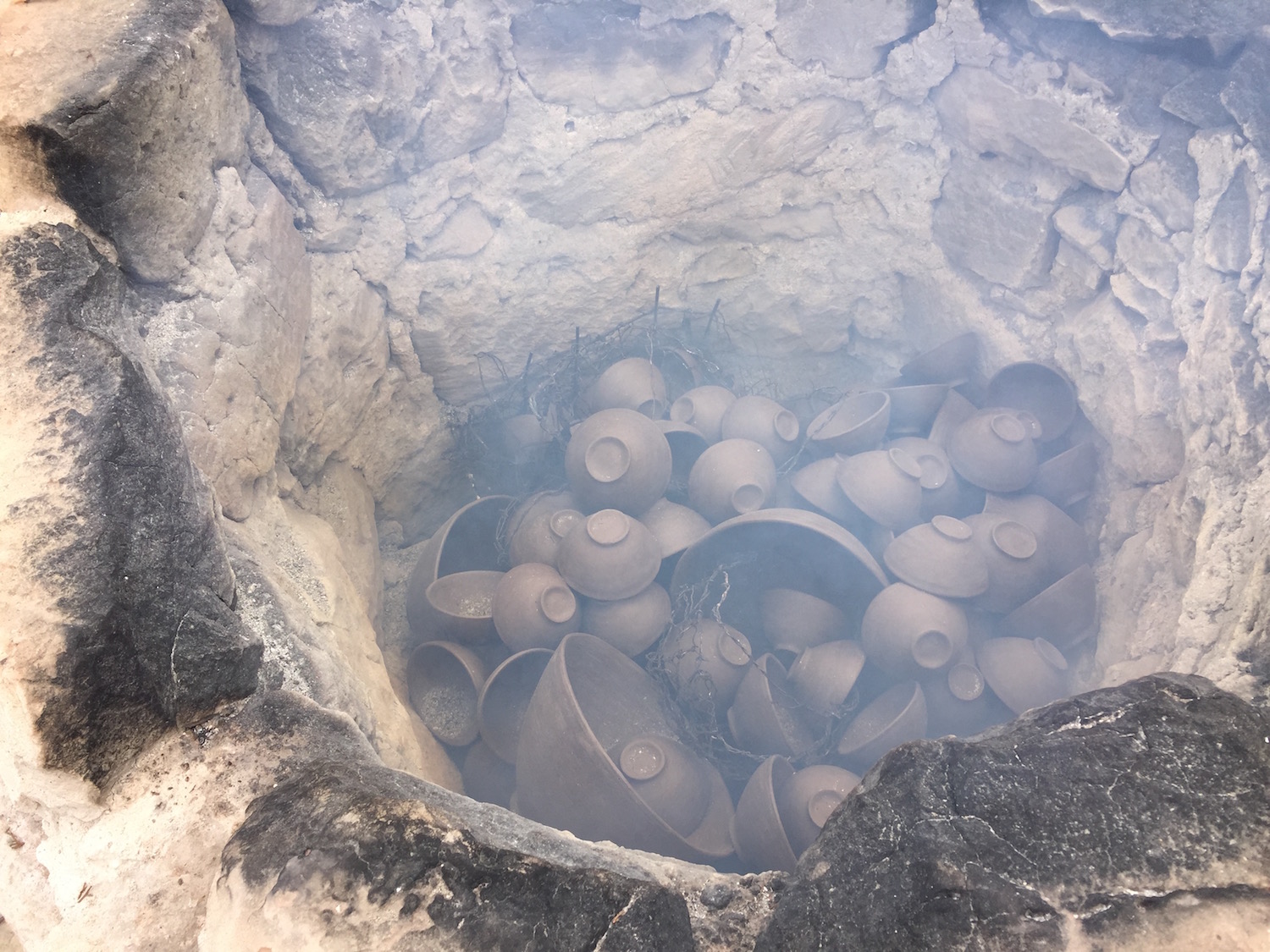
(Sophia Mullin)
Thread Caravan hosts artisan adventures around the world ranging from weaving and ceramic trips in Mexico to custom trips in multiple locales for designers who want to source materials directly from artisans. Here’s the full 2018-19 workshop schedule.
Combining education and adventure, the workshops allow travelers to learn about traditional craft production in communities where the craft originated from or has been practiced for generations while also enjoying adventures unique to each destination. According to Ahern, “the adventures show participants firsthand the effort that goes into making the goods they purchase, allowing them to cultivate an appreciation for the talent of the craft. This knowledge allows consumer values to shift from quantity to quality, doing away with disposable buying patterns, and thus conserving the Earth’s limited resources.” Additionally, Thread Caravan also sells handmade global goods to empower and preserve indigenous artisans.
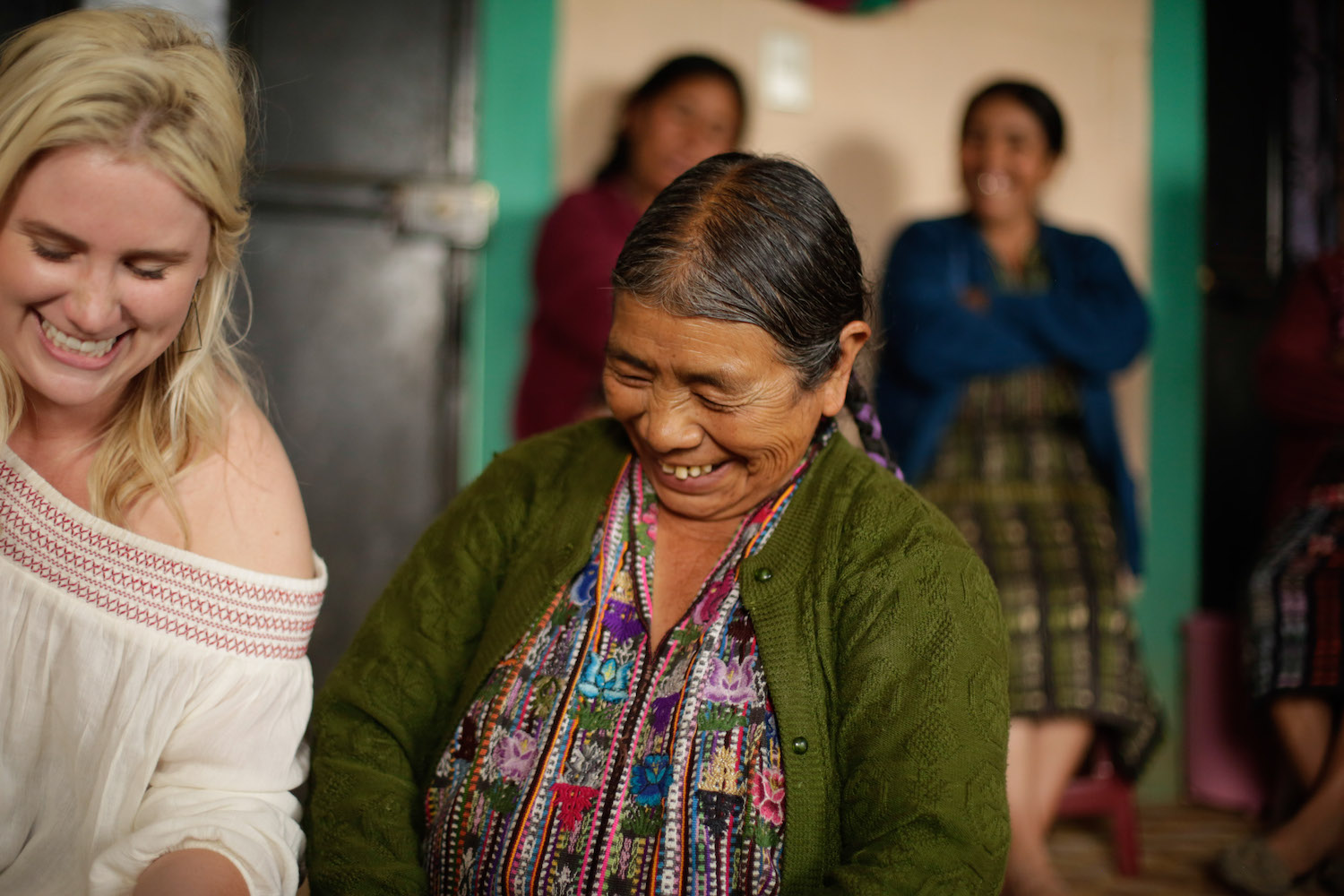
Credit: Paula Harding. This Guatemala Weaving Workshop took place in towns surrounding Lake Atitlan where travelers connected with three different weaving co-ops. Upcoming Guatemala Weaving Workshop: May 6-12, 2018
Thread Caravan offers travelers several destinations and unique workshops to choose from. For custom group ventures, the company offers suggested itineraries from spinning wool and hiking glaciers in Iceland to exploring volcanoes and backstrap weaving in Guatemala, however, they are open to other trip ideas. The video below is a glimpse into just one of many artisan adventures offered through Thread Caravan.
Rogue Habits recently caught up with Caitlin Ahern to discuss the catalyst behind Thread Caravan and learn more about the workshops, how participants apply their trip experiences to their lives/businesses, why these trips are relevant in today’s society, and the future for Thread Caravan.
RH: What was the catalyst for Thread Caravan? Is this a full-time business and what did you do prior to this work?
CA: I started Thread Caravan out of different needs that I saw – the need for deeper cultural understanding and handmade processes, the need to support artisans in a way that isn’t just dependent on consumerism, and the need for people to create with their hands. I’m working on Thread Caravan full-time, but I also spend time working on other projects. For example, I’m currently co-producing Emily Katz’ summer book tour. I also work on side projects that are part of the Thread Caravan umbrella like being a liaison between designers and artisan producers.
Before Thread Caravan, I did different things that when combined, paint a clear picture of why I started Thread Caravan. Specifically, I had a small brand upcycling clothes and styling photo shoots (my favorite creative medium is sewing). I also interned for two fair-trade artisan companies while I was in school studying Sociology. And finally, I worked as both a teacher and a nanny, and really value education and the privilege of sharing information and making learning fun. I’d also lived and worked abroad (when I was a teacher), and friends would ask advice about traveling. Thread Caravan is literally the culmination of all those past experiences — creativity, sociology, travel, and teaching.
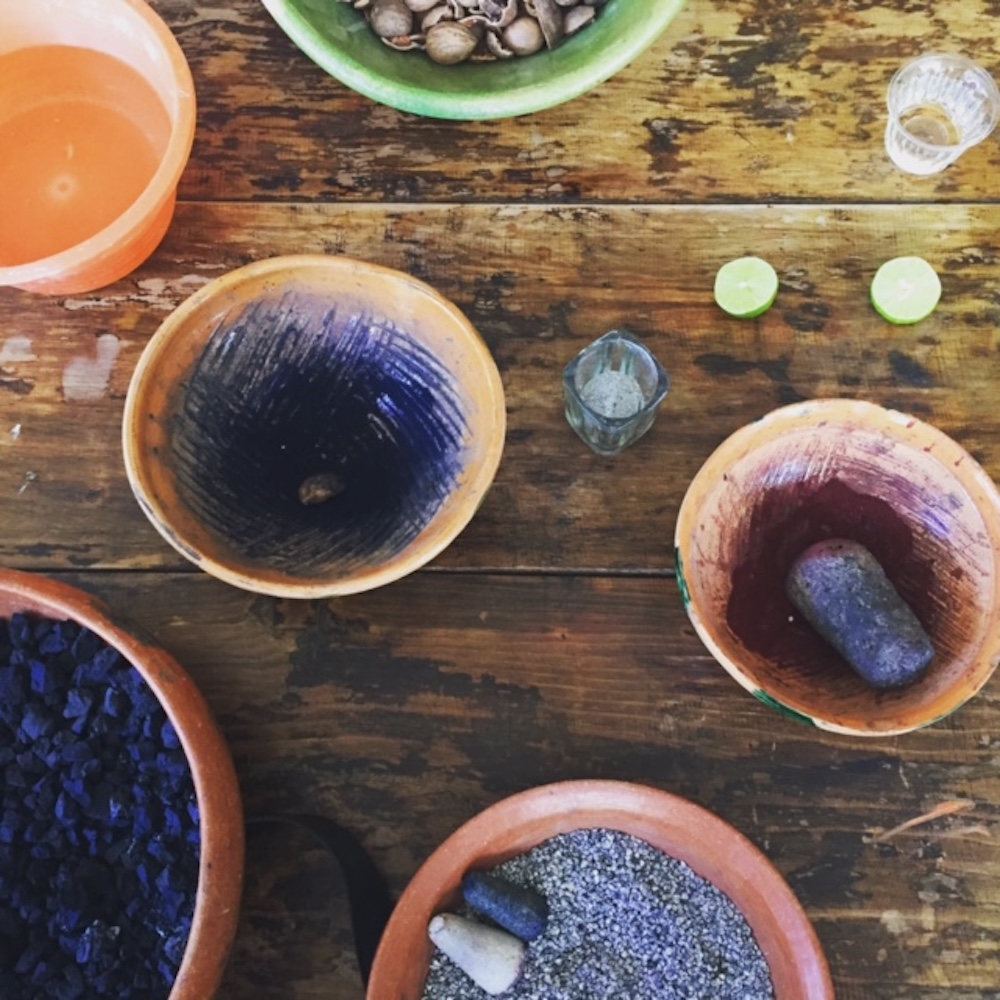
Credit: Leah Pellegrini. Weaving Workshop in Oaxaca. Upcoming Oaxaca Weaving Trips: March 17 – 22, 2018, October 21 – 26, 2018
RH: Can you give some examples of how Thread Caravan is helping to preserve cultures in this time of rapid globalization?
CA: It’s really hard to create measurements for these sorts of things. But, they [preservation of cultures] can be witnessed in the day-to-day transactions and from trip-to-trip. In general, I think promoting and reviving handmade processes help to preserve cultures, as these processes are central to traditional customs. One way the impact is most visible is with children. It’s very common that in the few rural communities where handmade crafts are still being done, children want to leave to go to the cities and change their life circumstances. They don’t see the traditional crafts as valuable skills. However, via small-scale tourism, when we bring small groups to the homes of the artisans, where they are admiring and respecting the artisan skill and patience with the craft, the children truly see that appreciation and I think their mindset shifts.
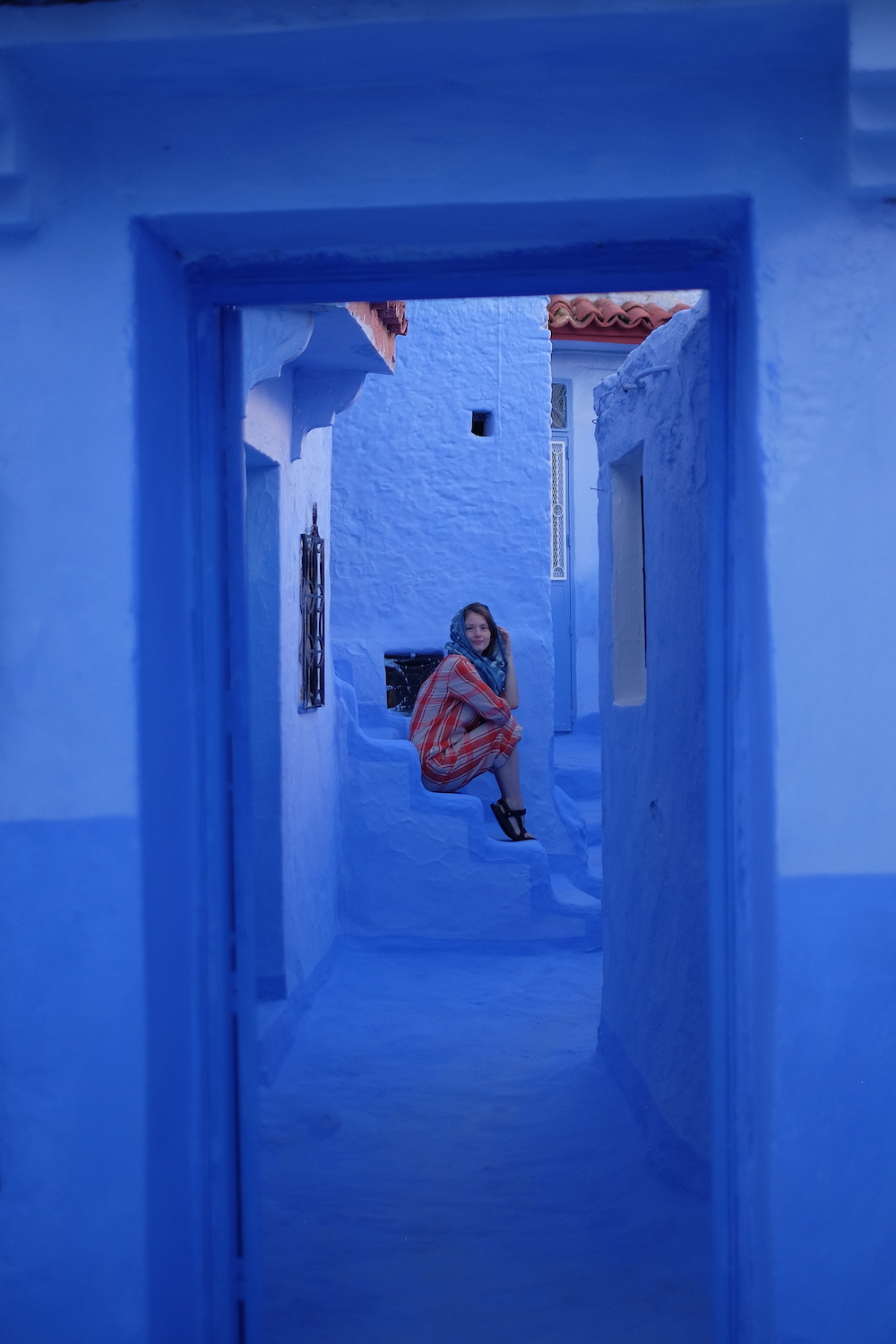
Photo of Caitlin Ahern.
RH: How have participants used what they’ve learned from your trips and applied this knowledge to their lives/businesses?
CA: Our trips encourage people to be more conscious consumers – to ask questions about the people and processes behind the things they use. They learn to value the makers and appreciate their skills, instead of just trying to haggle for the best bargain. Both travelers and artisan instructors are exposed to new design ideas and new ways of living. Trips teach both groups about cultural diversity, instilling pride in each person’s own identity while respecting and learning from people from other backgrounds.
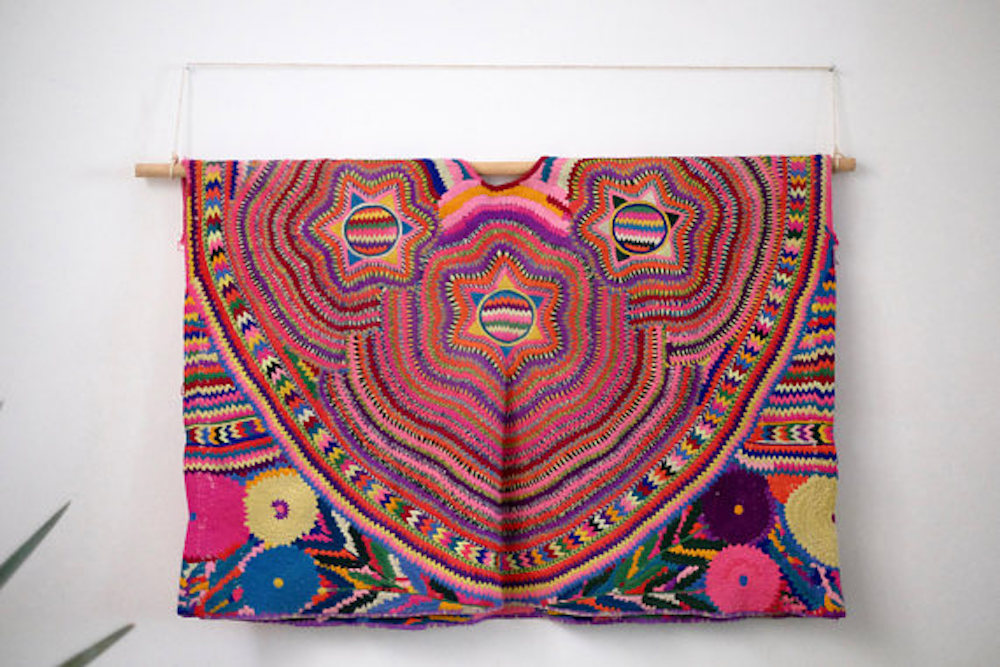
Ceremonial Embroidered Huipil – This vintage huipil is completely handmade by a Guatemalan artisan in the San Mateo Ixtatan region. Credit: Thread Caravan
RH: Why do you think these adventure trips are relevant/important in our society now?
CA: For so many reasons! Each person is gaining something different depending on what they need. But I feel a few of the main perks are: stepping away from technology and creating something tangible with your hands, facilitating deeper cross-cultural understanding and respect emboldening artisans in their positions as instructors, and communicating our appreciation for their skills and history.
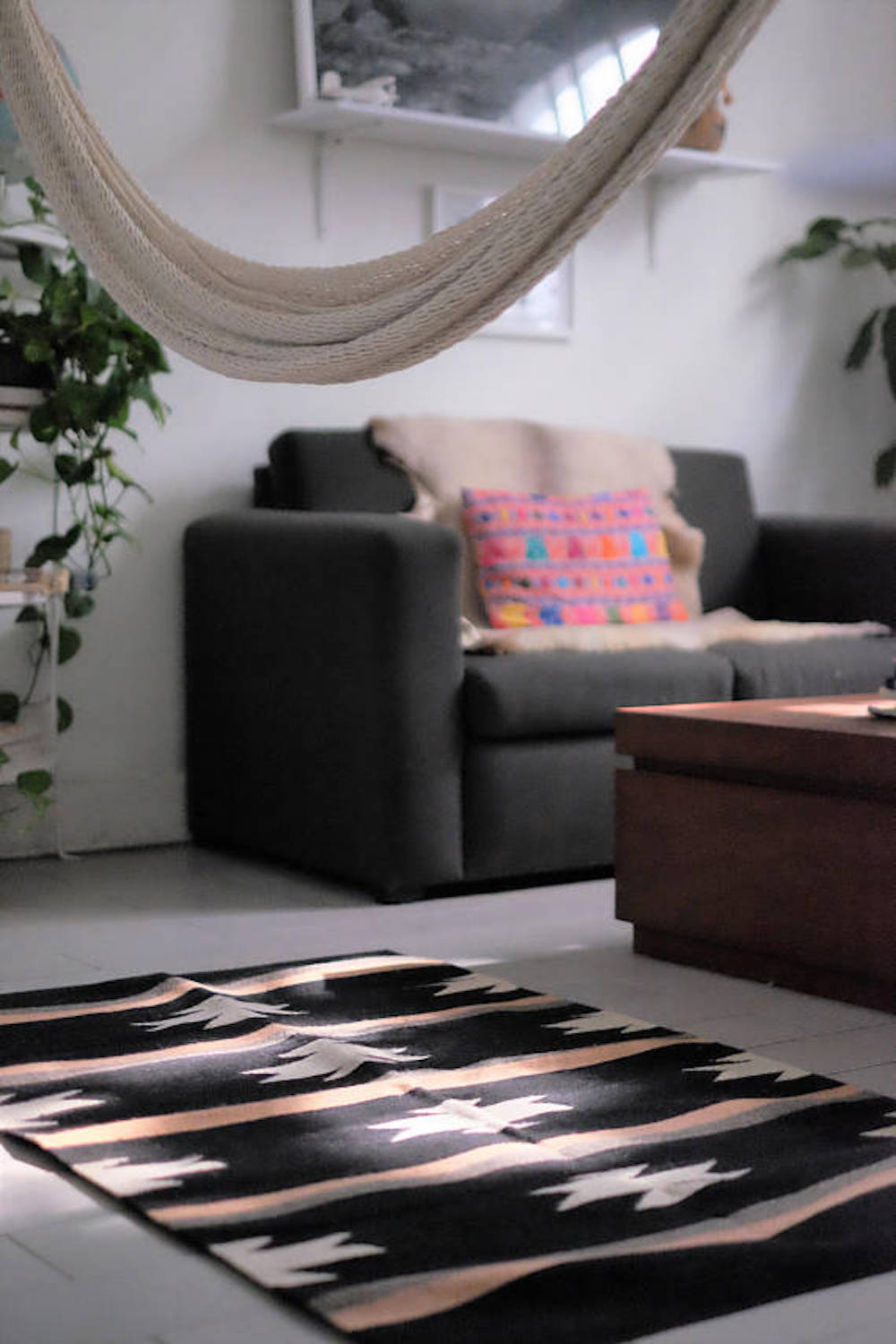
Black and Blush Wool Rug from Oaxaca – This rug is woven on a foot loom by artisan partners in Oaxaca, Mexico. The co-op focuses on job training for women, providing more opportunities in the community. Purchase here. Credit: Thread Caravan.
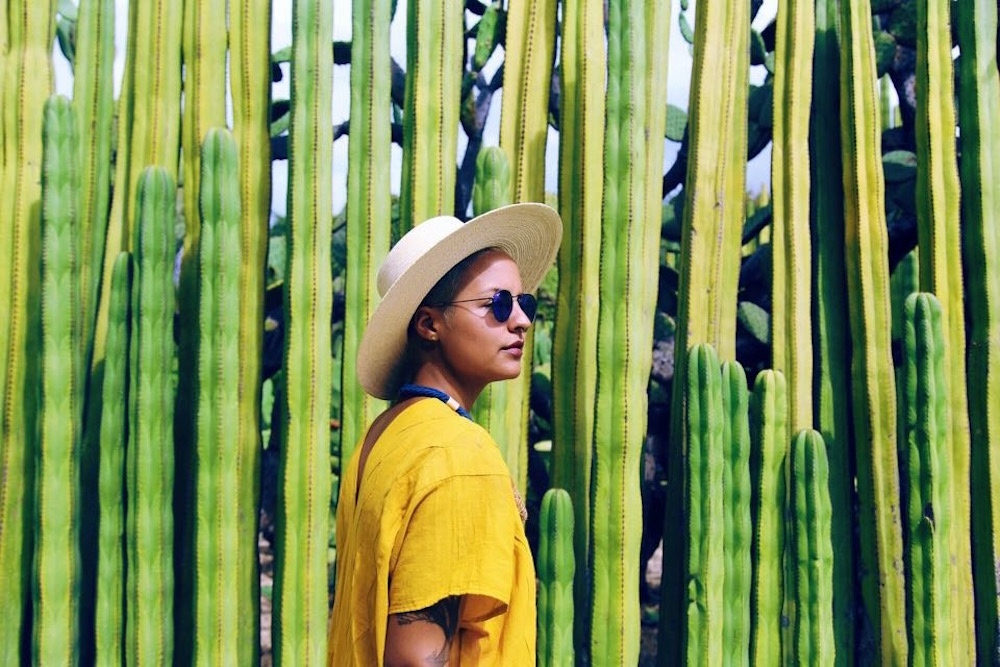
Credit: Leah Pellegrini
RH: What’s the future look like for Thread Caravan? Goals?
CA: There are so many! I’m always thinking up new ideas and growth. However, this year I am working on not trying to do too much and spreading myself thin. I want to focus more on the amazing relationships we already have — both with artisans and travelers — and continue to build on those. But – new projects are inevitable, and a few side projects on the current horizon are: a new trip destination, a book, a small collection of rugs, and more designer-artisan liaison work.
Learn more about the community and see a full list of workshops at threadcaravan.com.

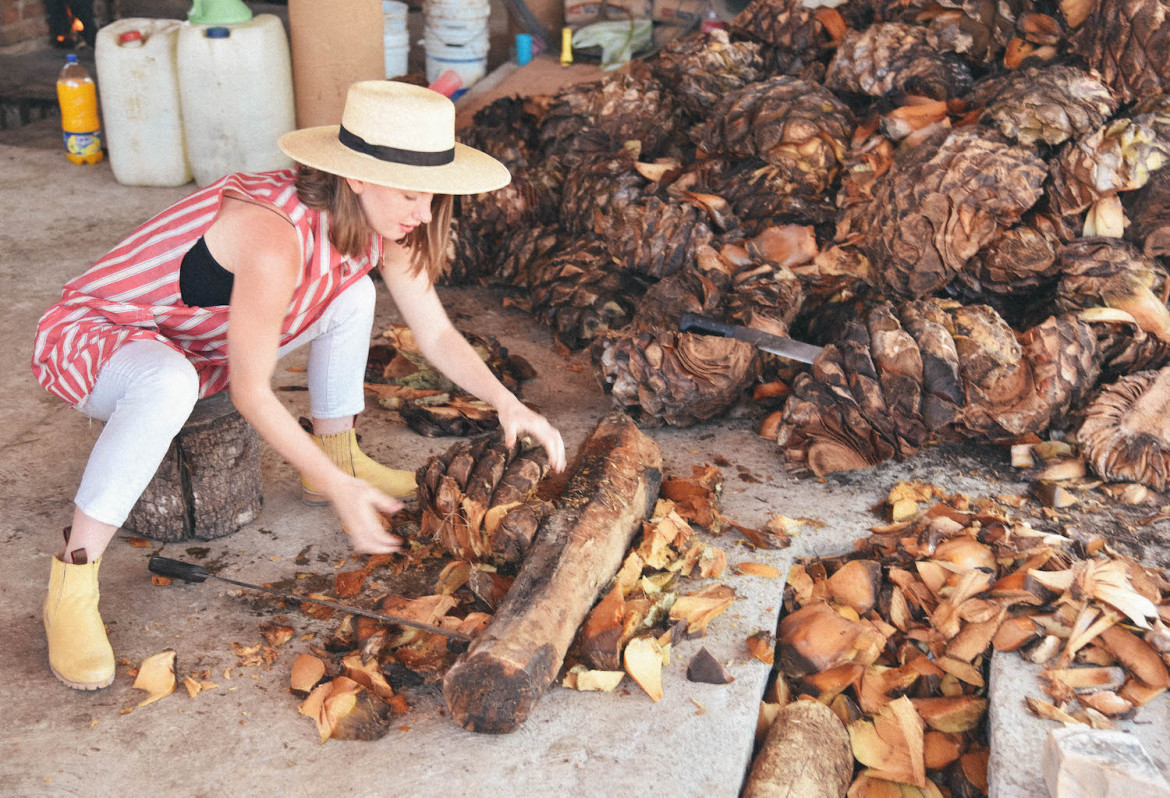









Leave a reply